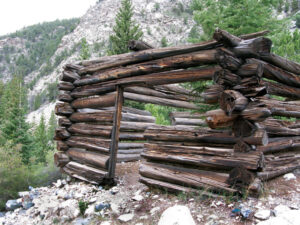By Hayden Mellsop
“No theme this month. Just write about whatever is on your mind.”
Words to instill fear into the heart of any columnist, at least this one. Where to begin? Without a focal point my imagination resembles something of a flat, featureless ocean. Me, bobbing at its center, scanning the horizon in all directions for sign of landfall, for something tangible to move towards.
But this lack of direction also forces me to address the question: what is on my mind? Aside, that is, from the workings of a virus and being witness to the near-total breakdown of a political system that has proved itself to be far less robust than even the most cynical among us assumed.
On my mind lately has been an awareness of mortality, of a lifetime accelerating ever closer to its finality. Common enough I imagine for anyone who, like myself, has turned sixty. The highway that once seemed to stretch off without limit toward a vague horizon, now suddenly begins to take form while the view in the rearview mirror fades from recall.
On my mind lately has been wondering how thirty-year-old me, first arriving in Salida from New Zealand and intending to stay only three months, would have reacted if you’d told him that at sixty he’d still be living in Mayberry, married to a woman from California with whom their first date was Quarter Beer Night at The Vic, with two grown daughters and a career that somewhere along the way transitioned from river guiding to real estate?
Salida was a strange little town to my eyes back then, sleepy and welcoming and in the process of shrugging off its most recent go-around with the downward cycle of a boom-and-bust economy. One could cross diagonally at First and F without much needing to check for traffic, and the cashier at the grocery store would cover the shortfall in your grocery bill from their own pocket because they knew your face and that you’d be back to repay them in short order.
However, as Tom Petty once remarked, “nostalgia isn’t what it used to be.” There was good reason why those houses were cheap and plentiful. Hand in hand with the seemingly simpler, slower pace of life went less convenient details often forgotten; white-washed windows, boarded-up storefronts, kids with no place to skate or shoot hoops, and businesses that could only keep their doors open part of the year.
I came to the small-town outdoor life as something of a late-bloomer. City-raised, small towns equated, to me, with small minds and limited opportunity. It took a multi-day raft trip on a remote river in New Zealand in my mid-twenties for the scales of that particular assumption to fall from my eyes. All of a sudden, the hustle and vibe of city living revealed itself as a distraction from a deeper, more elemental calling.
I became a raft guide, an unexpected turn of events for the kid who was the last in his swim class to pluck up the courage to let go of the flotation aid, and who wouldn’t go fishing with his old man because he was scared the boat would sink. I first skied in my late twenties, first rode a mountain bike and held a fly rod at thirty. This late blooming, and the accompanying caution that comes with age, has meant that as far as the outdoors are concerned, I have become something of a jack-of-all-trades, master of none. I can muddle my way out of most situations on a mountain with a snowboard strapped to my feet, feel no shame in dismounting and walking a stretch of single track fellow riders navigate with ease, and can cast a fly rod and manipulate a line sufficiently well to catch a fish most times I try.
Yet as my physical capacity to perform wanes—a minimum of five minutes stretching each morning is required before socks can be pulled on with any modicum of comfort—the call to spend time in the mountains grows stronger, driven like fall itself, by a sense of urgency. Life’s shadows are lengthening, and stark finality awaits.
This sense of urgency has recently led me to add another pursuit, namely splitboarding, to the list of activities I can perform adequately, not masterfully. Skinning up a mountain, the countryside a criss-cross of soft neon and silent shadow under a full moon, or standing atop the spine of the continent in the day’s first blush of color, honest calories expended getting there, brings with it a sense of privilege, a sharpening of the senses, and an appreciation that, at that moment in time, there are few, if any, I would envy.
Do I wish I was not such a late bloomer? Do I wish I had discovered experiences and learned lessons earlier than I have? The short answer is no. Earlier discoveries mean different life decisions, leading to different lives. Perhaps, in the multiverse theory of quantum physics, there does exist a version of me who was a more confident swimmer, or who went fly fishing or skiing for the first time as a teenager, who discovered the connections and charms that accompany small town life, and if so I hope he is happy and living in a sound place.
For me, I’ll take my life in Mayberry, with all its quirks and growing pains. I’ll take the mountains surrounding it and the river that flows through it, and an aching back and diminishing flexibility, over a life spent looking too much in that rearview mirror.
Hayden Mellsop believes it is better to bloom late than never.
The Last Word is sponsored by Judith and Ed Kinzie.


